In today’s
Vatnik Soup, I’ll talk about Russiagate and the Russian interference in the 2016 US elections. Twitter Files by
@mtaibbi and The Grayzone blogger
@aaronjmate have often suggested that the Russians had no effect on the election, which simply isn’t true.
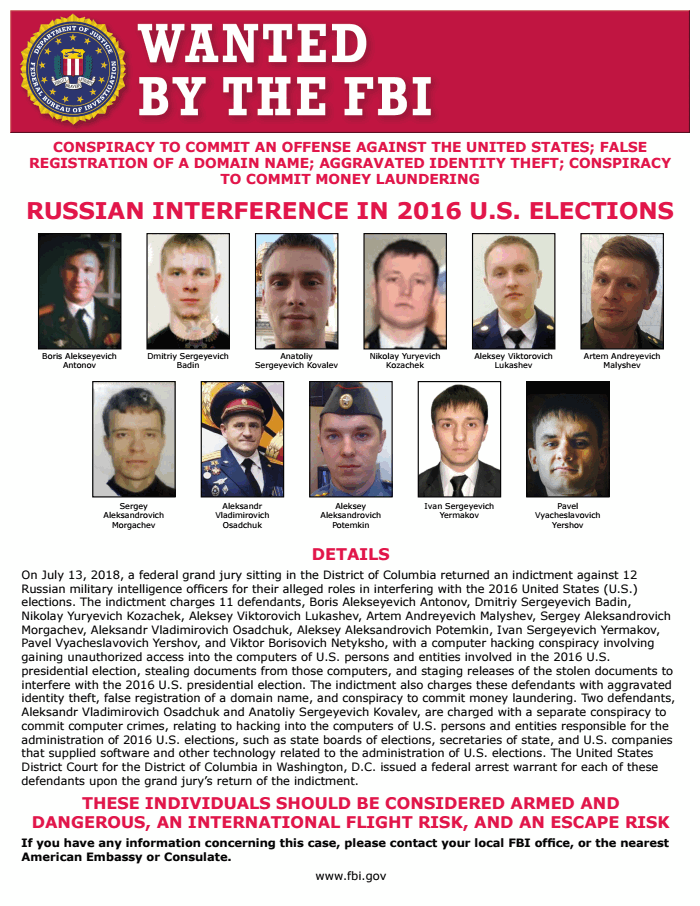
Many pro-Russian actors have been downplaying the effects of Russian propaganda and disinformation campaigns during the 2016 elections.
In Jan, 2023, Eady et al. published their research on Nature Communications which concluded that …
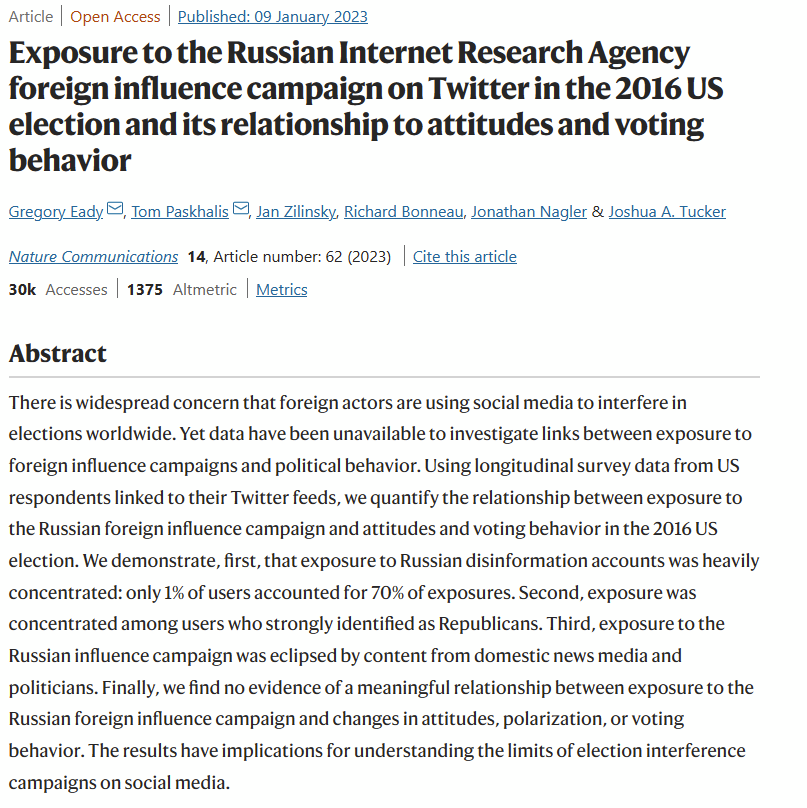
on Twitter, 1) the Russian disinformation was heavily concentrated, 2) the exposure was focused on people who identify as Republicans, and 3) the Russian influence campaign was eclipsed by content from domestic news media and politicians.
This led to a publishing of several news articles, for example from
@LukewSavage,
@BrettWilkinsSF and
@samfbiddle, claiming that “Russia bots” weren’t effective during the 2016 US elections, even though the study doesn’t even have the word “bot” in it.
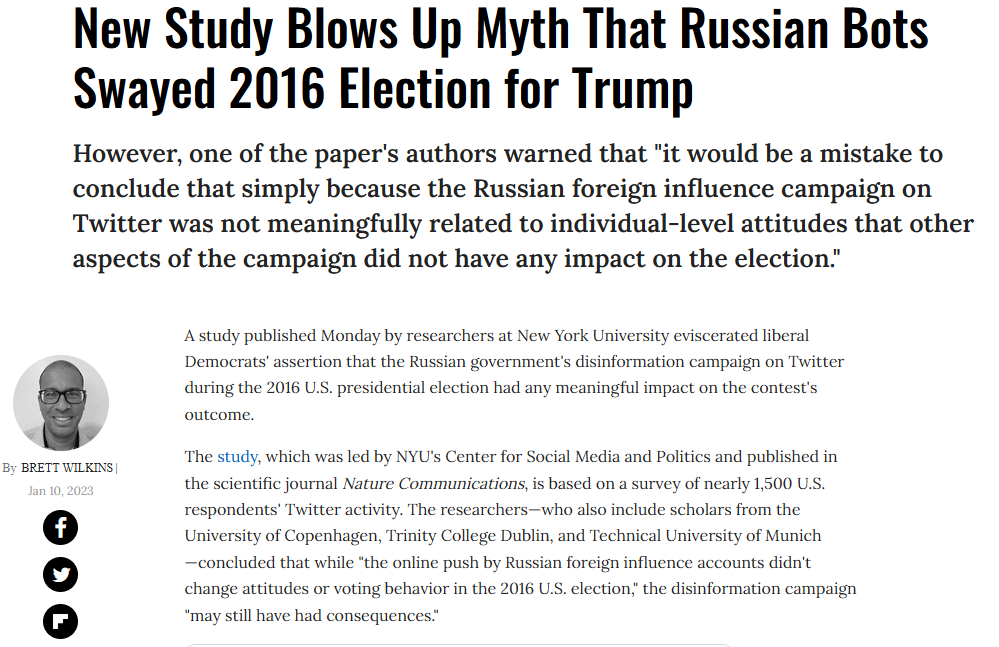
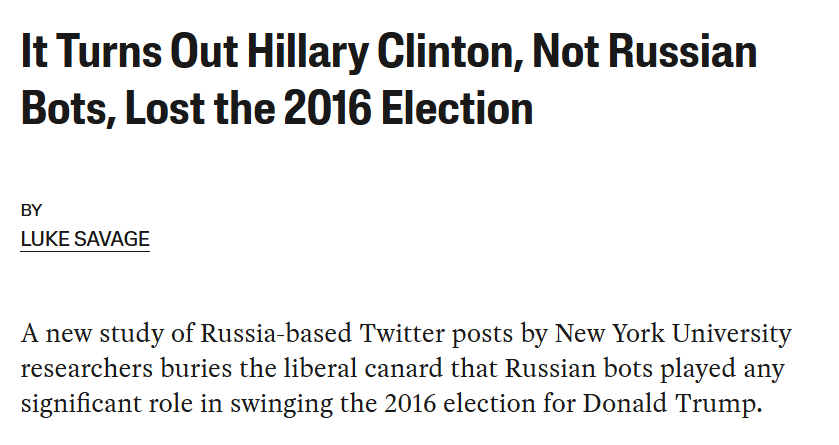
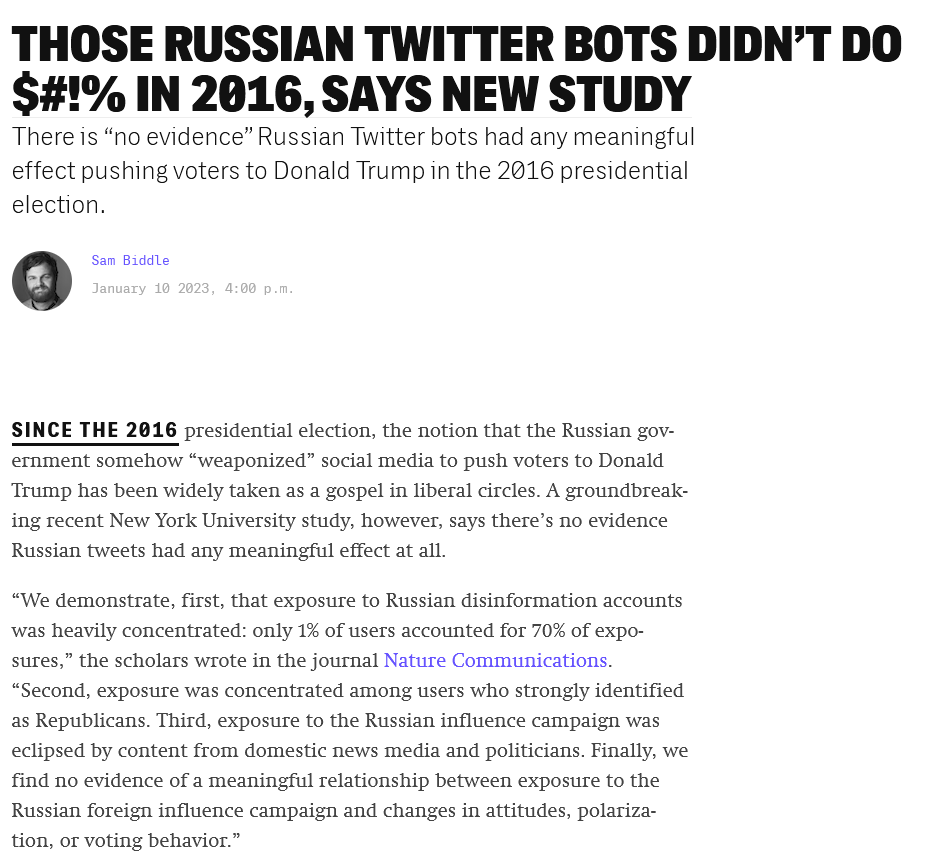
The study itself had nothing to do with bots, which are automated user accounts that are often used to spread and augment content on social media.
Second, the study’s scope was very small, and it looked into the relationship between Russian …
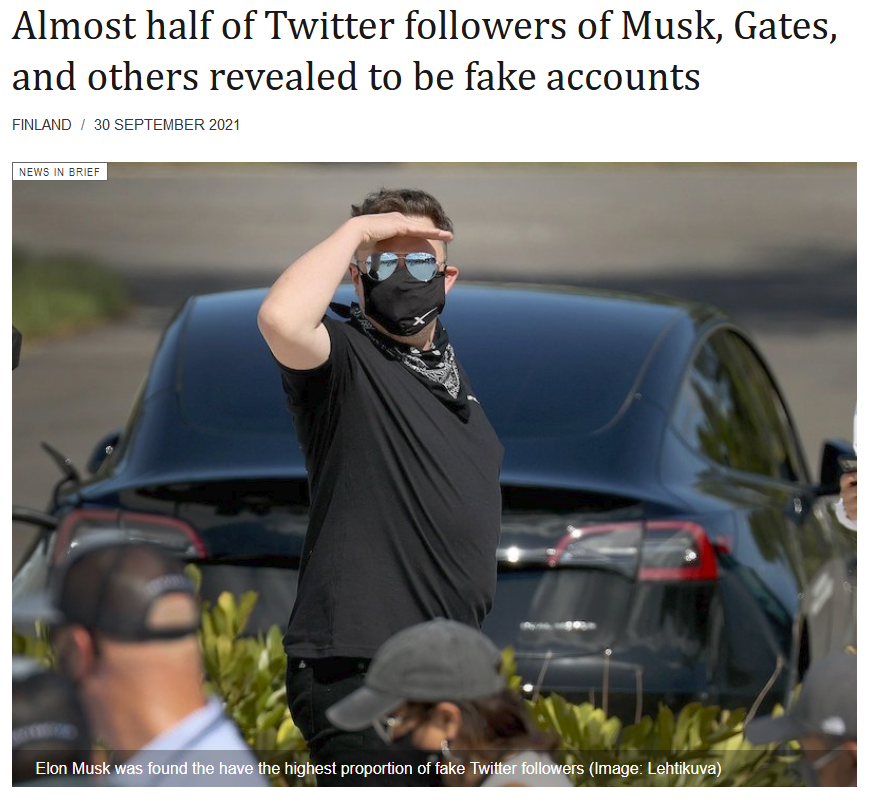
… propaganda tweets and attitudes and voting behavior. This effect wasn’t found, but because the scope was so small, it’s impossible to make any real conclusions in regards to actual voting behavior or attitude change.
In 2016, Russia spent 1, 5 billion USD per year on online disinformation and propaganda. They ran campaigns in Reddit, Youtube, 4chan, Instagram, Twitter, fake news blogs, Facebook and FB groups.
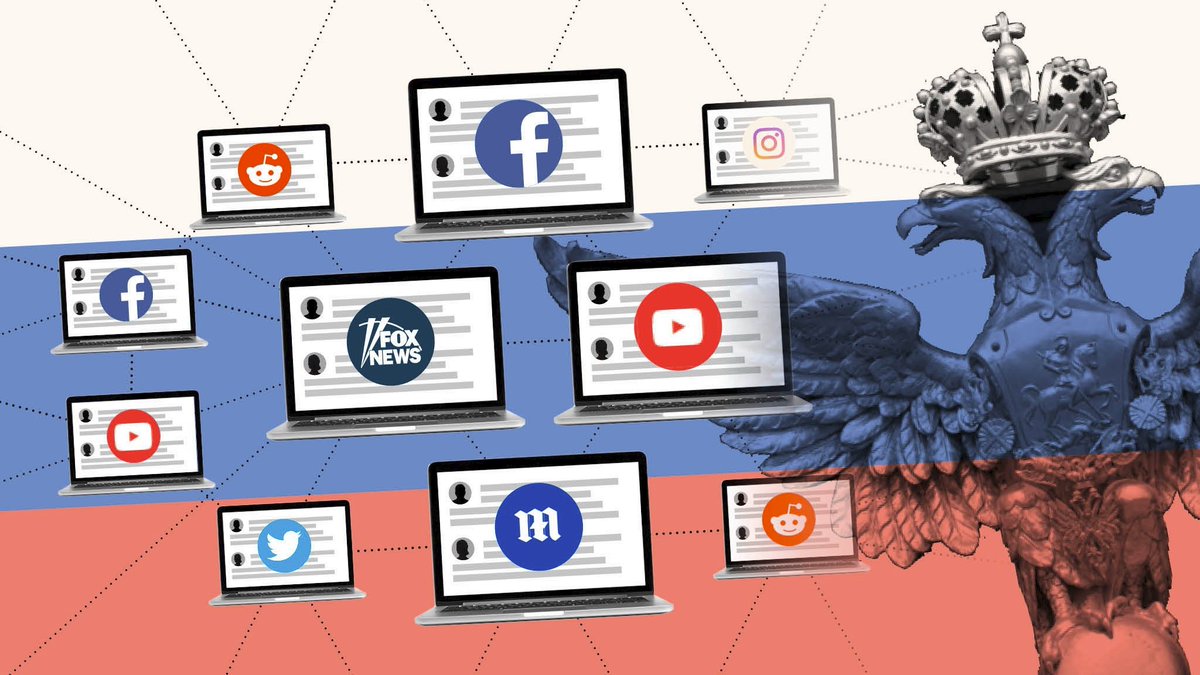
They also organized rallies, demonstrations and infiltrated activist groups. Internet Research Agency (IRA) also spammed comment sections of various domestic newspapers and other websites.
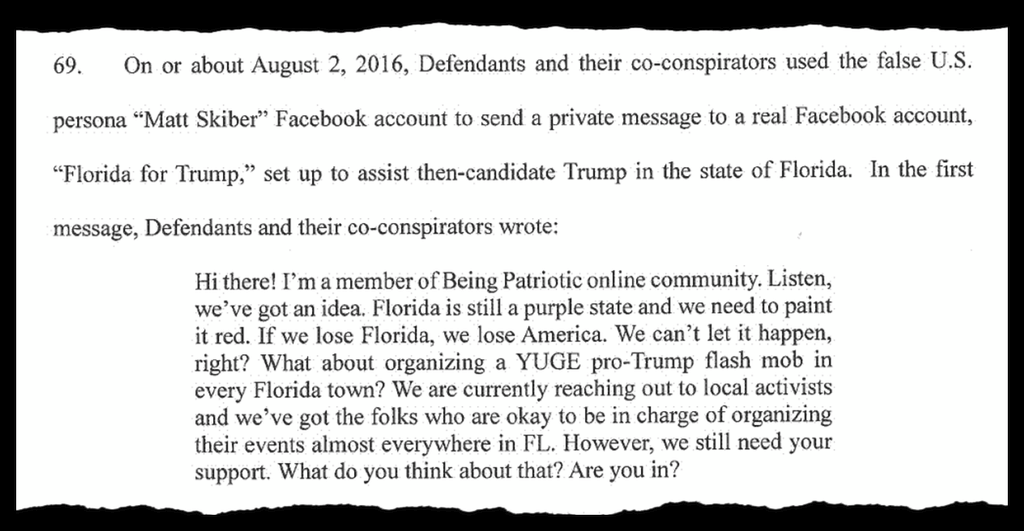
For example, MIT Tech Review from 2021 exposed the incredible Russian infiltration in Facebook — 19/20 of top American Christian FB groups were troll farms, from African-American FB groups this number was
.
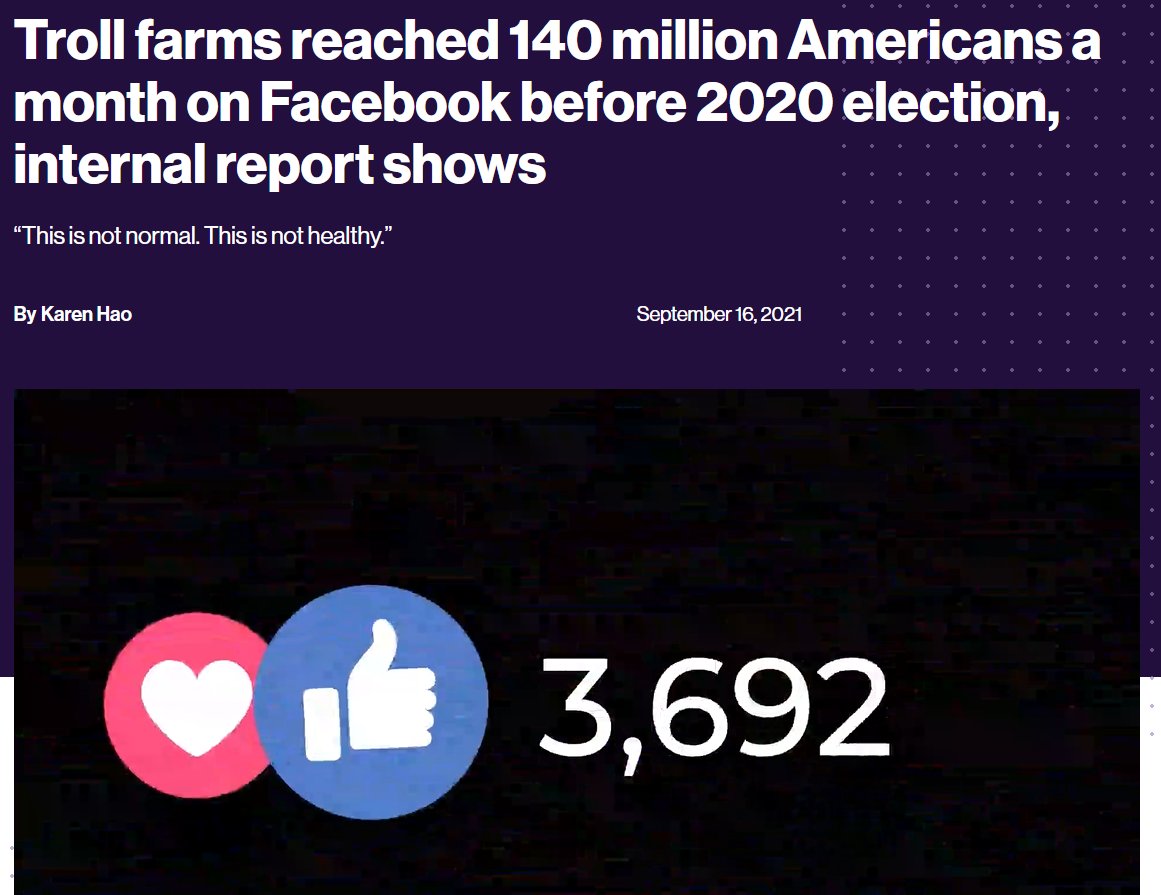
So called “hack and leak” operations were also effective in swaying the public opinion, and Russian hacker groups targeted especially the Democrats. For example the Podesta e-mails led to Pizzagate conspiracy theory which again helped QAnon to become extremely popular.
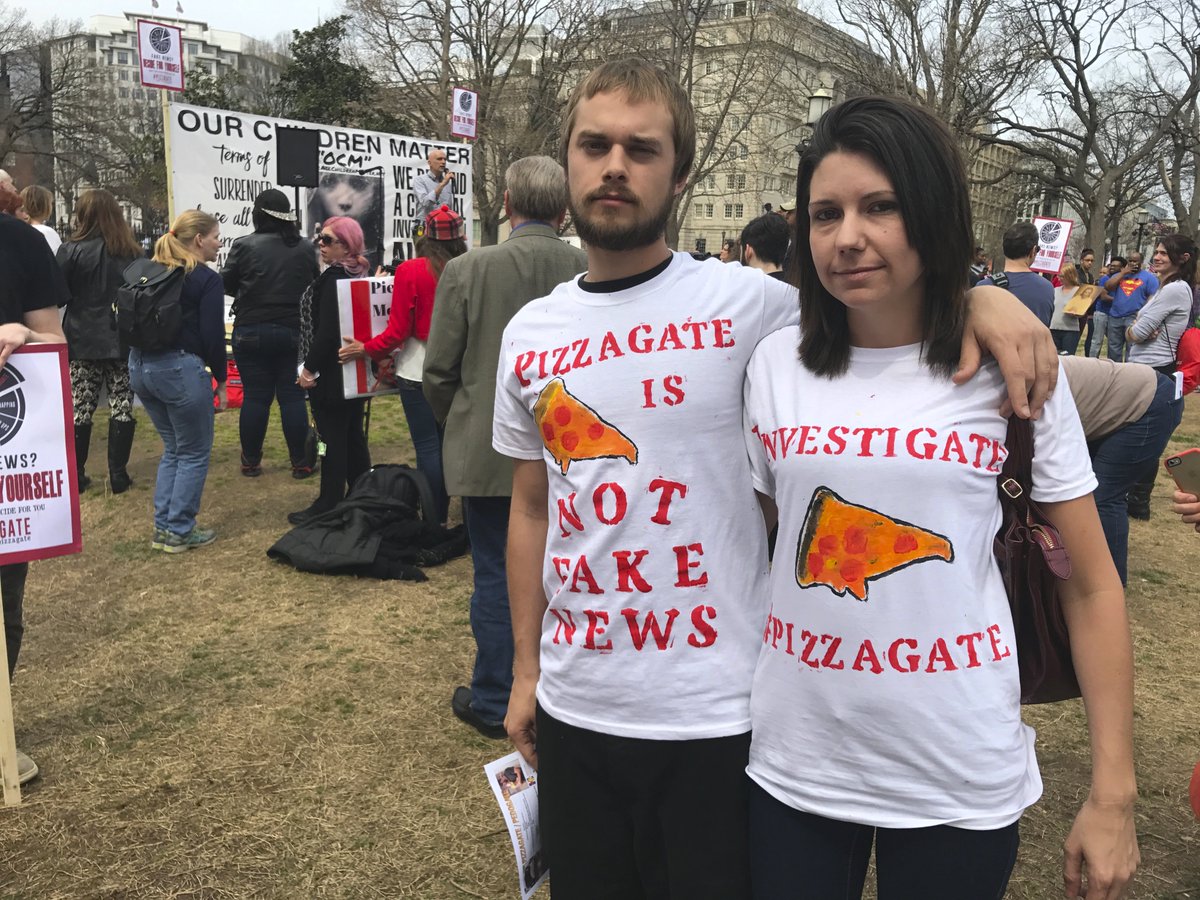
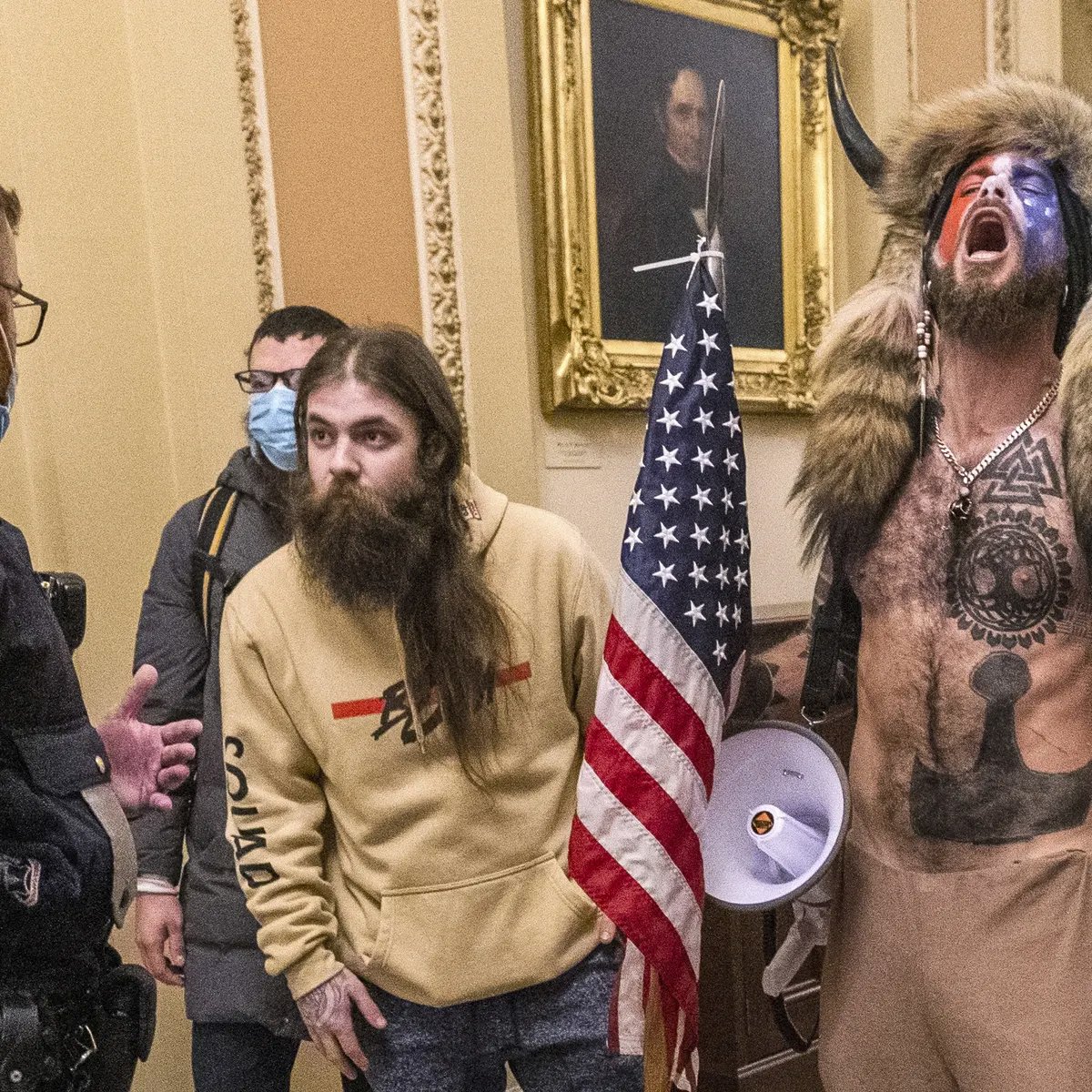
Russians also forged documents that were then spread online by the IRA employees and useful idiots like Trump-fanboy Roger Stone. RT, Ruptly and Sputnik also conducted propaganda campaigns for people in the US and in the West.
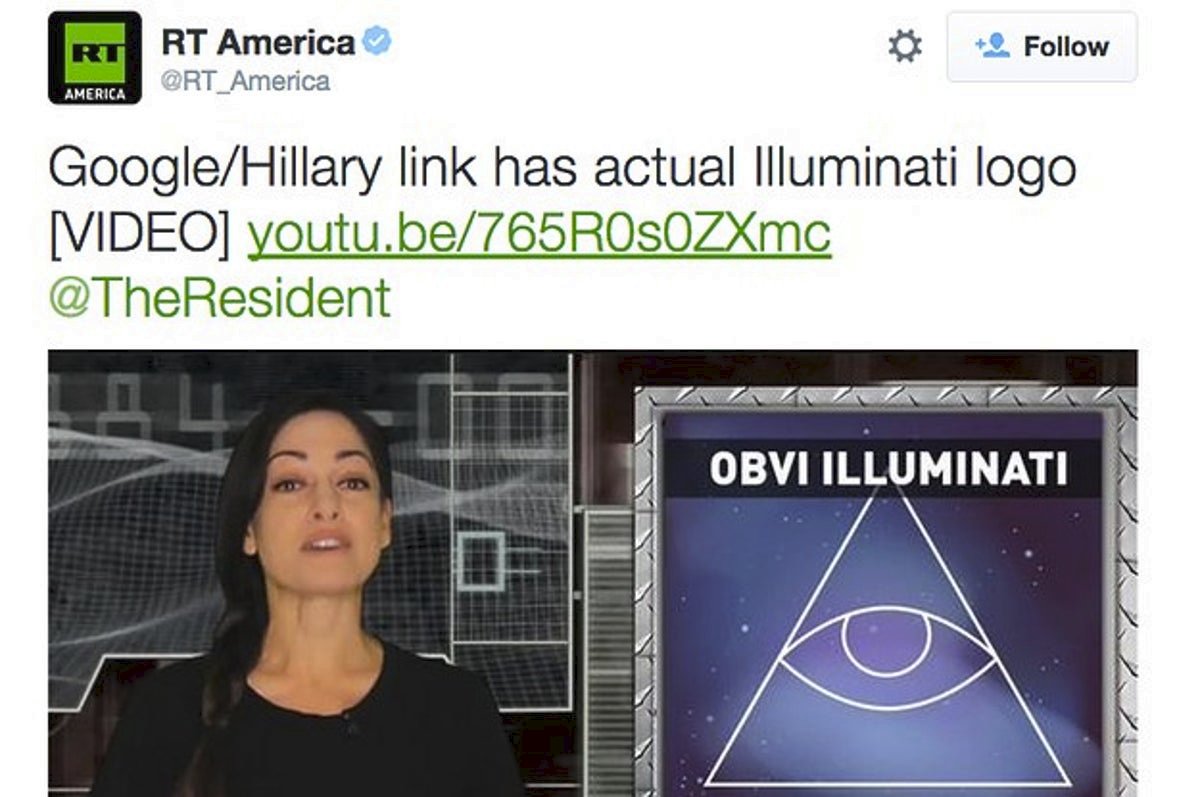
Memes and political news and ads were just a tiny part of this impressive campaigning, and research has found that organic online discussions were the most effective tools for the IRA.


The organization activated people on the far end of both spectrum and heavily promoted sensationalist and conspiratorial content. IRA employees goal was to “set Americans against their own government”.
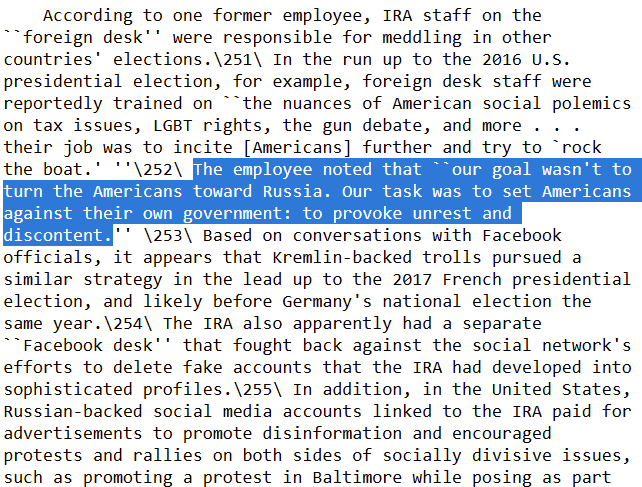
Stating that the research proves that “Russian bots” were ineffective is either ignorance or conscious lying, and it completely disregards the dynamics of Russia’s disinformation and propaganda campaigns.
36th Parallel made a nice graph of various aspects of the Russian information operation, and it shows that Twitter was just a tiny part of a huge campaign, affecting all levels of society.
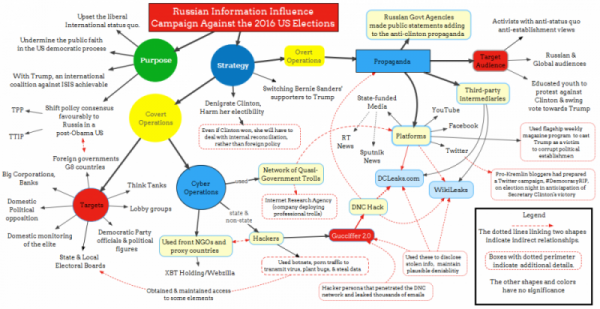
It’s quite telling that most major US news outlets have used IRA tweets as sources for partisan opinions, and many of their conspiracy theories and narratives already constructed in 2016 just won’t die.
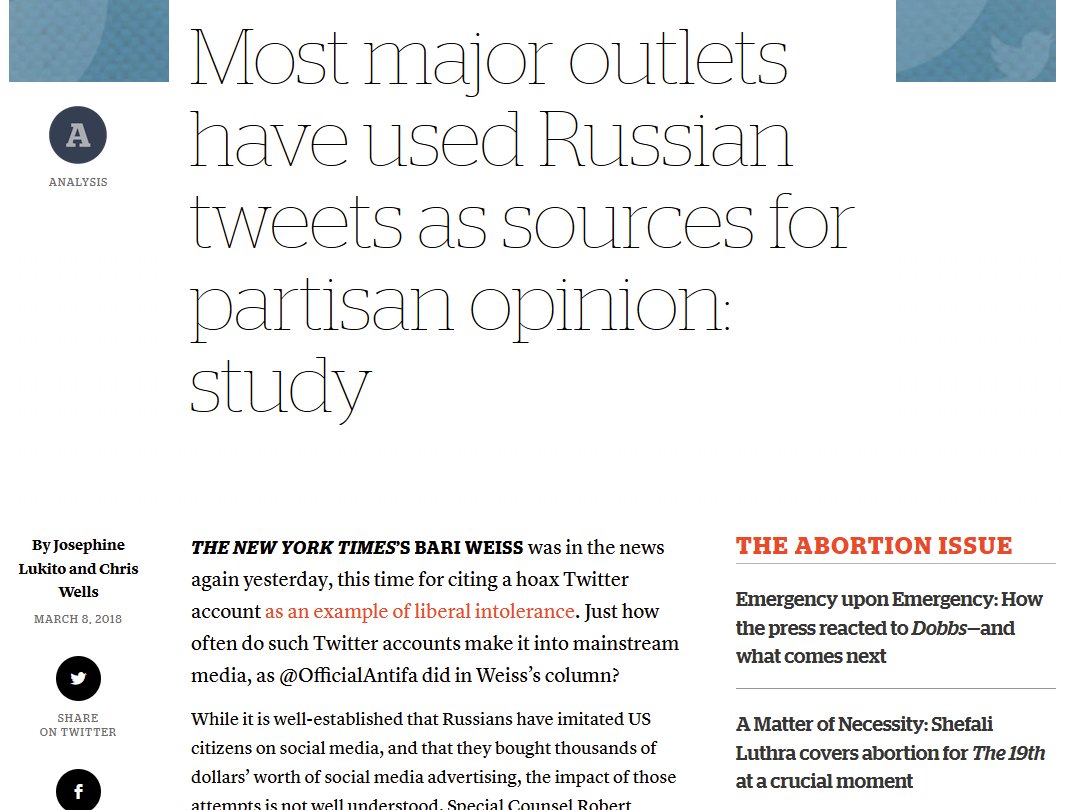
When someone’s stating that Russia’s tactics consisted of “Jesus masturbation memes”, they’re either being stupid or dishonest. anyone who’s looked into Russia’s “active measures” and IRA’s campaigns knows, that they were so much more, and that they had real impact in 2016.























